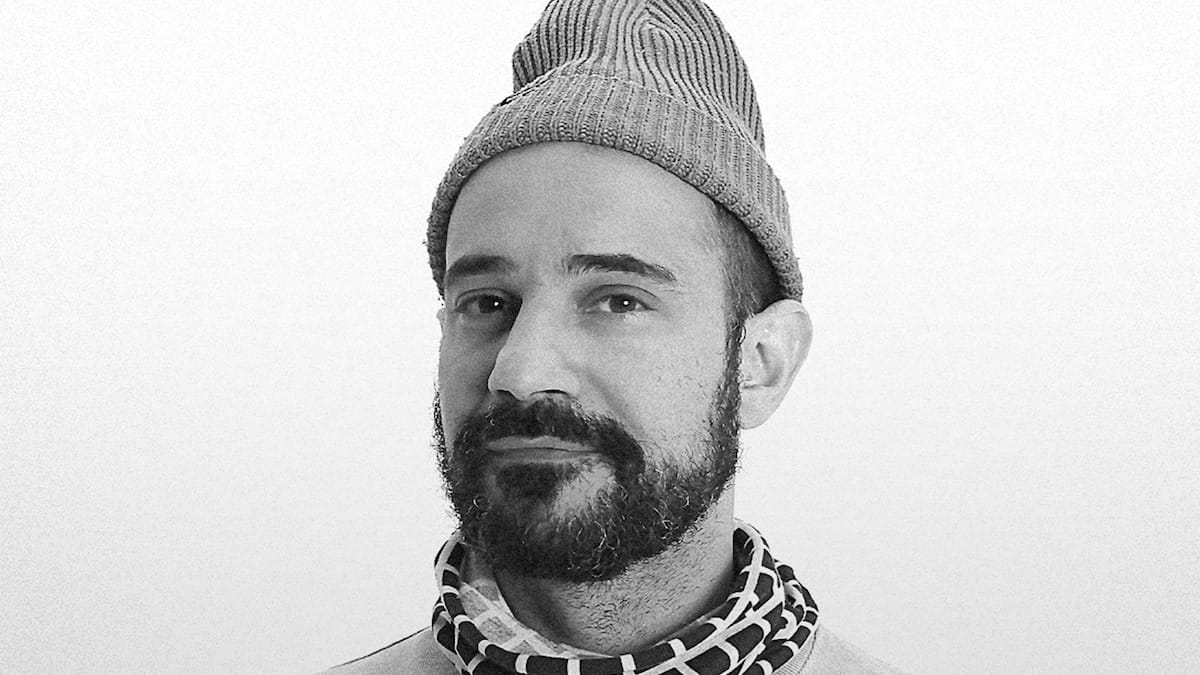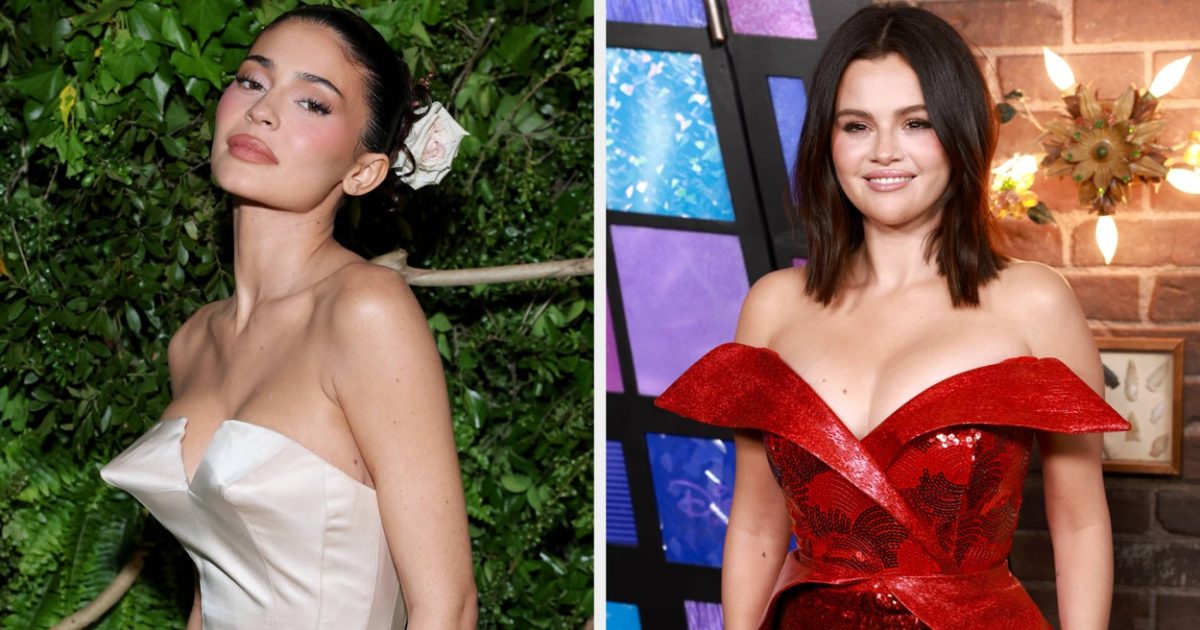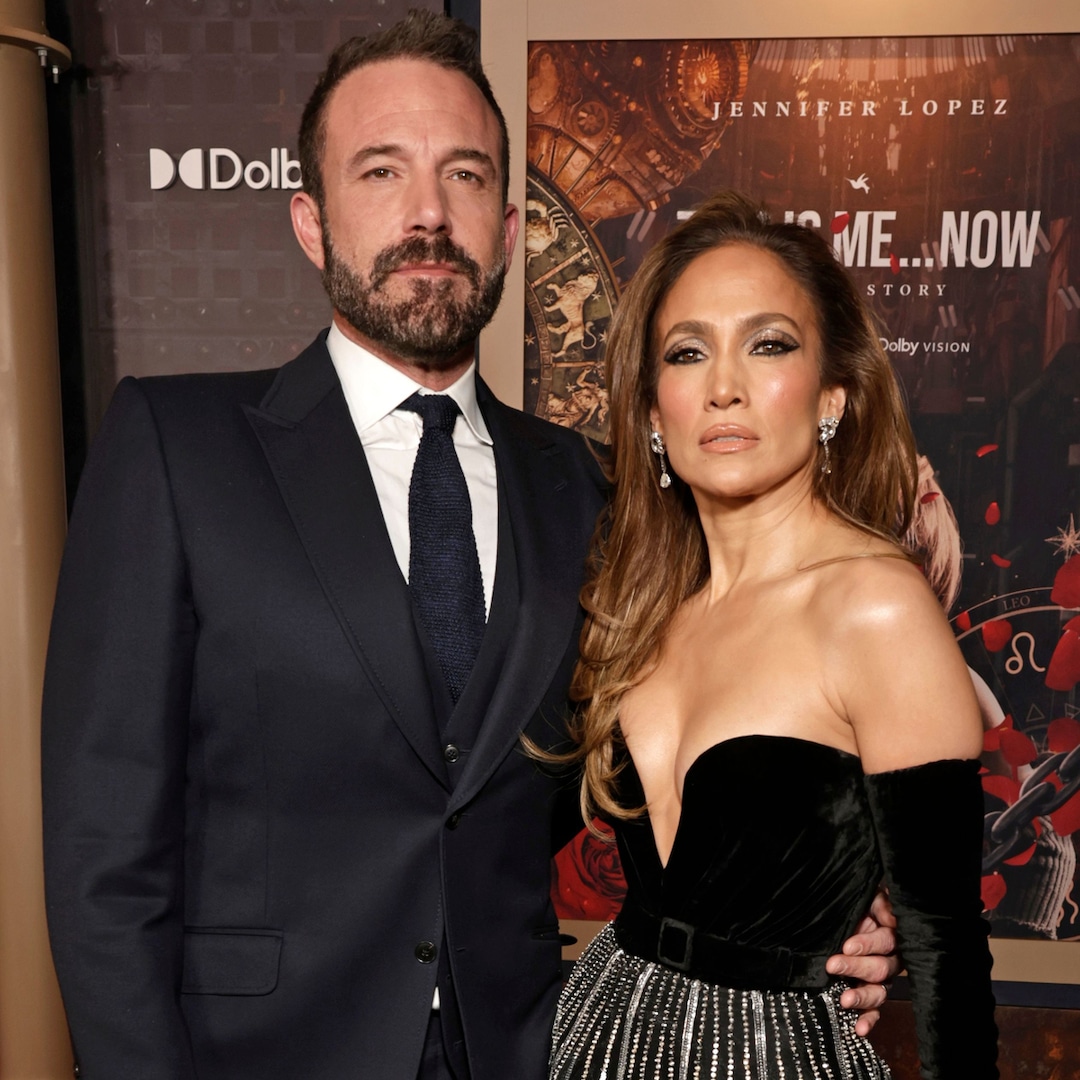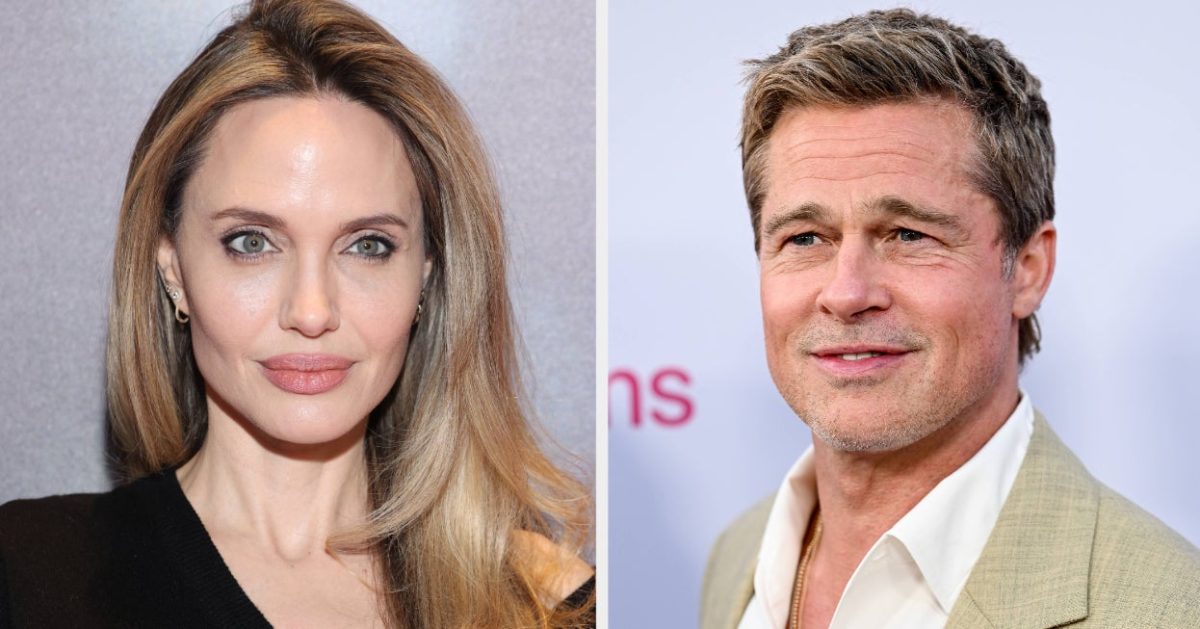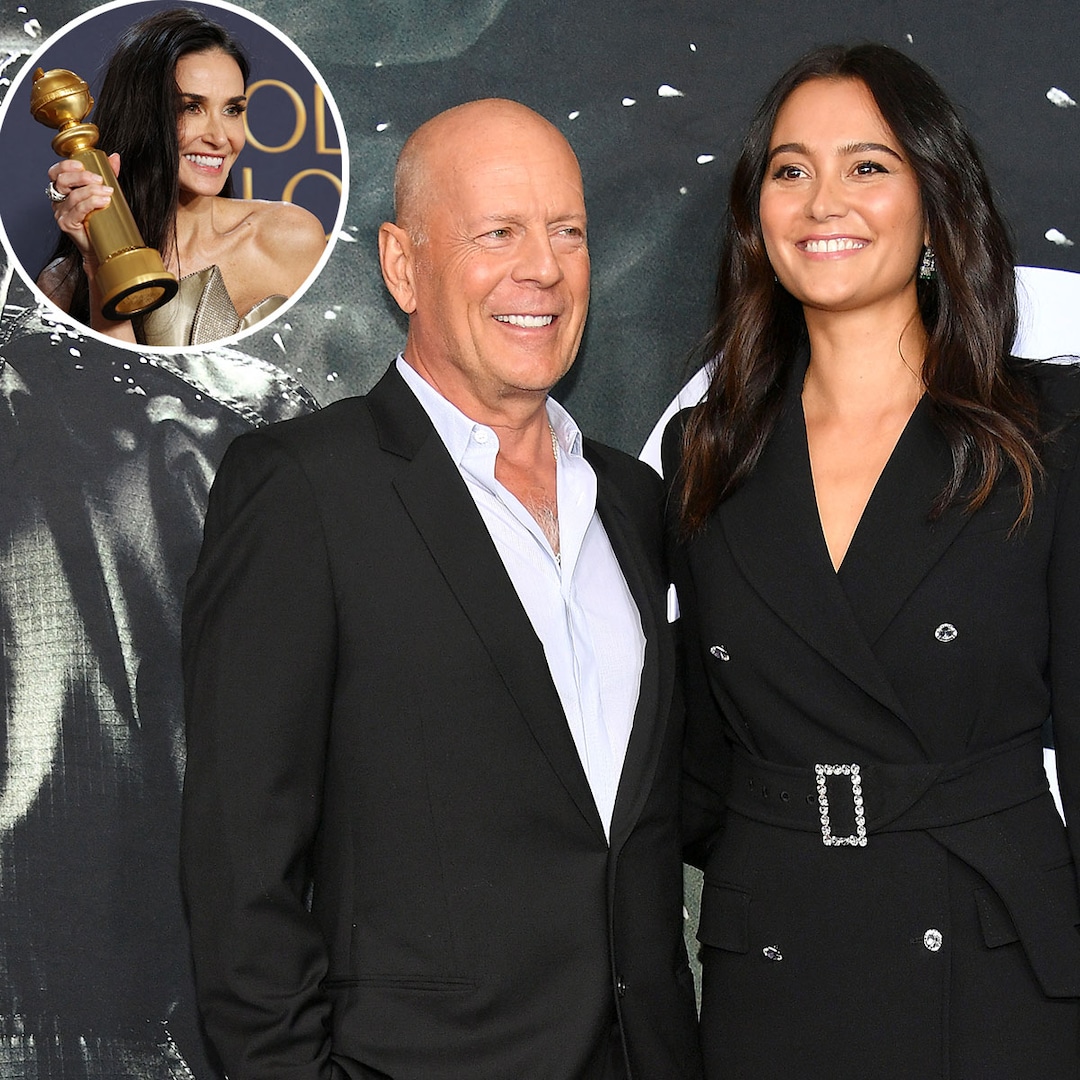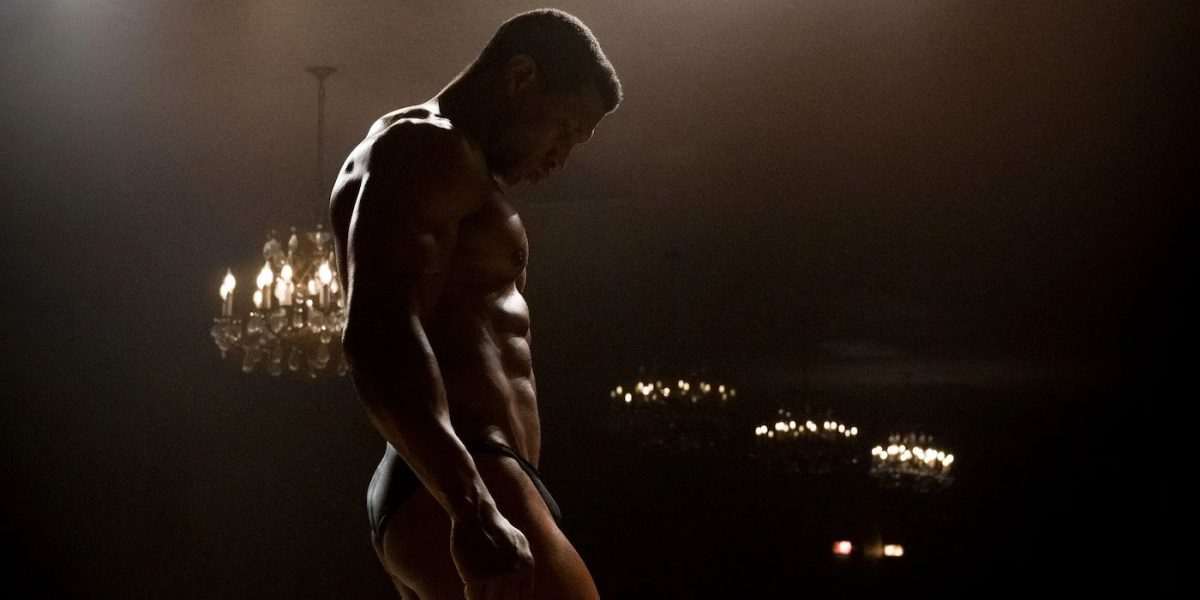
Jonathan Majors Shoulders The Weight of This Incel, Bodybuilder Drama [Sundance]
Jan 31, 2023
In Greek mythology, it holds that for a time, gods and mortals mingled freely, creating demigods whose sole aim was to prove their worth so they might join their celestial kin. For the Greeks, the gods who ruled on mount Olympus formed the idealized version of humans—often possessing super strength to match their perfect physiques. And yet, they possessed the same mortal character flaws—jealousy and insecurity—as us.
READ MORE: 25 Most Anticipated Movies At The 2023 Sundance Film Festival
When the lens takes in Killian Maddox (an otherworldly Jonathan Majors), from his sculpted chest down to supple legs, framed by the golden glow of halogen stage lights, we initially believe he is a god. But the bodybuilder, metaphorically, is of the demi variety. He wants to be remembered, to be uplifted to the pantheon of the toned men whose pictures he hangs on his bedroom wall, and he’ll do anything to achieve those lofty heights. Killian consumes pounds of protein daily; he lives in the gym; he consumes cocaine and steroids to fight through the pain. Most of all, he continually writes to his hero—champion bodybuilder Brad Vanderhorn (Michael O’Hearn)—with the unnerved jitters of Eminem’s Stan, hoping this god will take pity on him and elevate him to stardom.
“Magazine Dreams,” the audaciously ambitious feature from writer/director Elijah Bynum, however, isn’t wholly about bodybuilding. Though the body, specifically the Black body, does serve as the site for trauma, politics, and hurt. The film is primarily a statement, albeit a muddled metaphor, for the stationing of celebrity status with the rare instance of a Black incel.
Indeed, if you’re coming to the intensely paced “Magazine Dreams” hoping for “Magic Mike,” you should probably recalibrate your expectations. Through guile and empathy, Killian navigates his world: He works at a local grocery store where a crush (Haley Bennett) awaits if only he possessed the fortitude to approach her. Contrary to his hulking frame, he is shy to the point of emotional atrophy. Majors portrays Killian in these scenes as sensitive and polite, a man not made for this universe and, therefore, a perennial social outcast. The only person who might understand him is his grandfather, affectionately called Papa (Harrison Page), whom Killian nurses. Their paternal dynamic often recalls the relationship Majors held with Danny Glover in “The Last Black Man in San Francisco.” And often, Majors’ soft-spoken performance mirrors that film too.
That is, until the film progresses into an incel drama: First by taking on the form of obsessive commitment leading to personal failing as seen in “Whiplash”—a scene involving a bloody car drive to a competition, in particular, recalls the film—before transitioning to “Taxi Driver.” While, at first blush, “Magazine Dreams” doesn’t feel as political as the latter. Matters of the Black body are always political. It’s telling, in fact, that Killian is attracted to whiteness, both romantically and muscularly, and is critical of not just his own Black body but even the sensuality of Black women (as evinced in a scene featuring Taylour Paige as a sex worker, an all too brief role). Killian’s abnormally large physique further finds social meaning in how the police see him, how white folk think of him, and how he displays his body in competitions—not as an ideal statue—but in an exploitative fashion that mingles between a carnival sideshow and the auction block.
In that sense, “Magazine Dreams” takes great interest in subverting the classical bounds between beauty and the grotesque, between the ideal and the wretched. Killian espouses the belief that if you’re fat, no one will love you when, ironically, though he is trim, he doesn’t even love himself. That tension, wrapped in his traumatic memories, augmented with fractured mental health, transforms Killian into a grenade filled with violent tendencies: He hulk smashes through windows, makes a scene in a diner and buys a plethora of guns with the intent of taking revenge.
The latter leads to the picture’s most controversial point: Because the very thought of a Black incel is fraught with an uneasy rethinking of racial politics and assumptions. Black folk has spent several centuries overtly sexualized and confined to the setting of the streets rather than the online landscape. Bynum’s script enfolds that thought in themes of systematic disappointment, self-hate, and personal inadequacy: No matter how hard Killian tries, he can’t totally change his appearance. It’s a shortcoming that will keep him from greatness, the kind of immortality made for gods or, in the case of “Magazine Dreams,” celebrities. Killian persistently dreams about getting on the cover of a magazine or achieving viral fame. It’s a fantasy which acts as a drug. One that forces Killian to ignore his body by continuing to work out, one that sees him Googling queries such as “how to be remembered after you die?” Bynum doesn’t have this component nearly as well covered, nor pushes the idea nearly as far as he could, in a film that starts with many ideas without tangibly connecting them.
Instead, the tissue binding these narrative limbs together is Majors. Because cinematographer Adam Arkapaw (“The King”) isn’t afraid of a close-up. He allows the kindness and goofiness that can envelop Majors’ face to take hold; he also knows the acute pain that can hold the actor’s facial features in place, clearing the way for the score’s intonations of operatic Greek tragedy to take shape. A trigger warning is warranted in the latter half of the film as Killian descends into harsh periods of self-loathing, leading to difficult-to-stomach violence and a surprising revelation regarding the bodybuilder’s idol Brad, which totally shakes Killian.
In the film’s climax, Killian must contend with the possibility that his god is as hopelessly flawed as him. He must contend with those on high who restrict his access to the pantheon of fame. But most of all, he must find some way, somehow, to love himself, even if the world doesn’t love him back. “Magazine Dreams,” even with some shortcomings, is dense, deftly composed, yet oddly overbearing. It’s uncomfortable and conflicting and may even prove divisive. And it’s unquestionably unforgettable. [B+]Follow along with all our coverage of the 2023 Sundance Film
Publisher: Source link
Celebrities With Their Own Companies
Celebrities With Their Own Companies Whether you aspire to be an actor or musician, getting the shot at a big break is hard enough. But managing to make a career outside of what you were already famous for? Now that's…
Jan 7, 2025
Jennifer Lopez Reunites With Ex Ben Affleck at His Home
Jennifer Lopez & Ben Affleck Reunite at His L.A. Home Amid EstrangementThis is a pair of friendly exes...now. Less than five months after filing for divorce from estranged husband Ben Affleck, Jennifer Lopez reunited with the two-time Oscar winner at…
Jan 7, 2025
Why Angelina Jolie Won’t Talk About Brad Pitt Divorce
Why Angelina Jolie Won't Talk About Brad Pitt Divorce For a quick reminder, Brad and Angelina started dating back in 2005 after meeting on the set of their movie Mr. & Mrs. Smith. They didn’t get married until August 2014,…
Jan 6, 2025
Bruce Willis’ Wife Emma Reacts to Demi Moore’s 2025 Golden Globes Win
Demi—who wore custom Armani Privé to the event—beat out fellow nominees Amy Adams, Cynthia Erivo, Karla Sofía Gascón, Mikey Madison and Zendaya in her category. And when accepting her award, the 62-year-old shared a powerful message on overcoming a "low point"…
Jan 6, 2025


